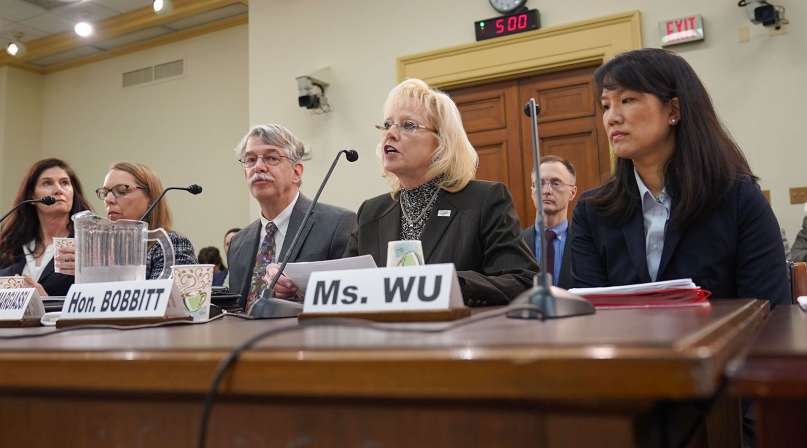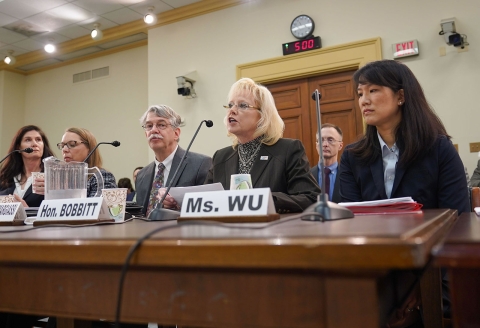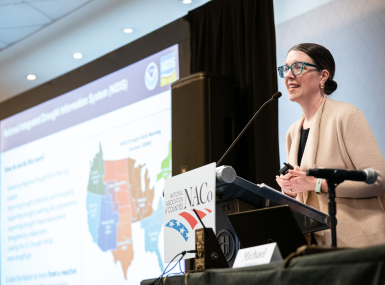Commissioner Bobbitt testifies before House subcommittee on EPA’s Lead and Copper Rule
Upcoming Events
Related News

Key Takeaways
On February 11, the U.S. House Energy and Commerce Committee’s Subcommittee on Environment and Climate Change held a hearing on the U.S. Environmental Protection Agency’s proposed Lead and Copper Rule (LCR). Testifying on behalf of NACo, Grant County, Okla. Commissioner and NACo’s Central Region Representative Cindy Bobbitt discussed the county role in providing clean and reliable drinking water to residents.
In her testimony, Commissioner Bobbitt informed members of the subcommittee that county governments are responsible for protecting local air, water and land resources. She stated, “Counties across the country share our federal partners’ concerns and are committed to doing all we can to eliminate lead contamination in all of America’s drinking water systems.” She also added that counties must also balance other responsibilities, such as operating jails, hospitals, 911 emergency systems, building and maintaining roads and bridges, and administering elections.
Commissioner Bobbitt highlighted four main points for the subcommittee’s consideration as Congress assess challenges and opportunities around eliminating lead contamination in drinking water:
- As regulators and regulated entities, county governments play a key role in providing clean drinking water and are committed to reducing lead exposure.
- Due to limited local resources and mounting federal and state mandates, counties face a challenging environment regarding long-term budget investments.
- Counties need clear, understandable and practicable federal policies to administer national water standards successfully.
- Further federal investments and early, consistent and meaningful engagement with intergovernmental partners is vital in the development and implementation of effective drinking water policies, programs and regulations.
To read Commissioner Bobbitt’s written testimony, click here.
To watch a webcast of the hearing, click here.
Counties will continue to work with Congress and other federal agency partners to develop policies that will protect the public health and safety.

Attachments
Related News

NOAA outlines help for counties navigating drought’s growing risks
In April, the National Integrated Drought Information System will launch the Mid-Atlantic Drought Early Warning System, which will help county officials allocate resources and attention to mitigate drought-related disasters.

House Agriculture Committee introduces 2026 Farm Bill
On February 13, House Agriculture Committee Chairman G.T. Thompson (R-Pa.-15) introduced the House version of the 2026 Farm Bill, the Farm, Food, and National Security Act of 2026.

Congress increases oversight of Gulf Coast Restoration Trust Fund
On February 3, Congress passed new funding and authority for an audit and expanded oversight of the Gulf Coast Restoration Trust Fund, which houses federal funds for recovery from the Deepwater Horizon oil spill disaster. The provision was included in the Financial Services-General Government appropriations bill (FSGG), which was one of five included in a minibus package passed by Congress (P.L. 119-75).